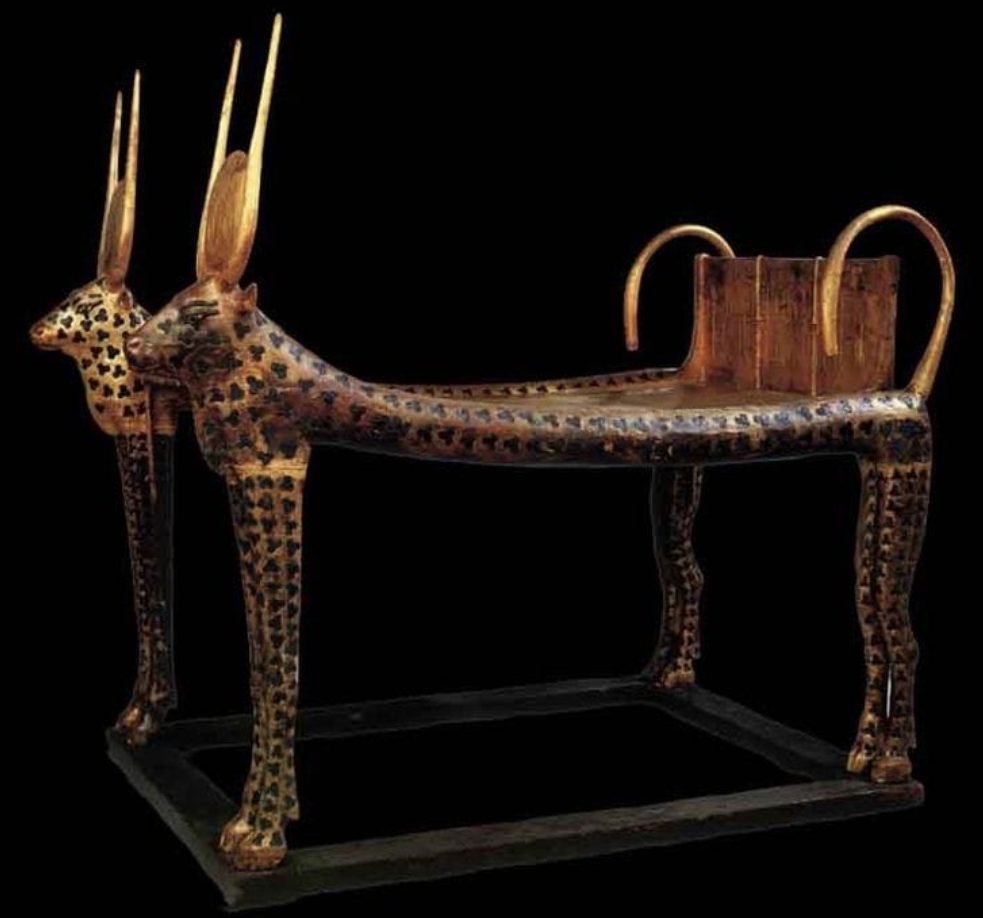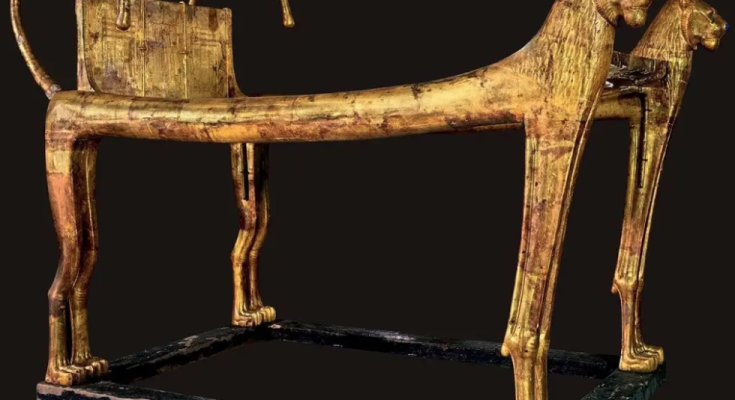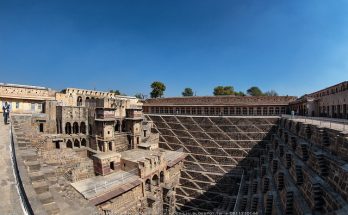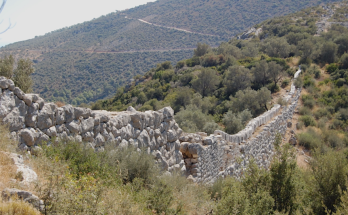This wooden bed is covered with gilded plaster designed to represent two elongated lionesses represent the goddess Mehit.
According to the ancient Egyptian beliefs, Mehit was identified with Hathor, Sekhmet, and Isis and helped to cause the Nile flood when she was appeased.
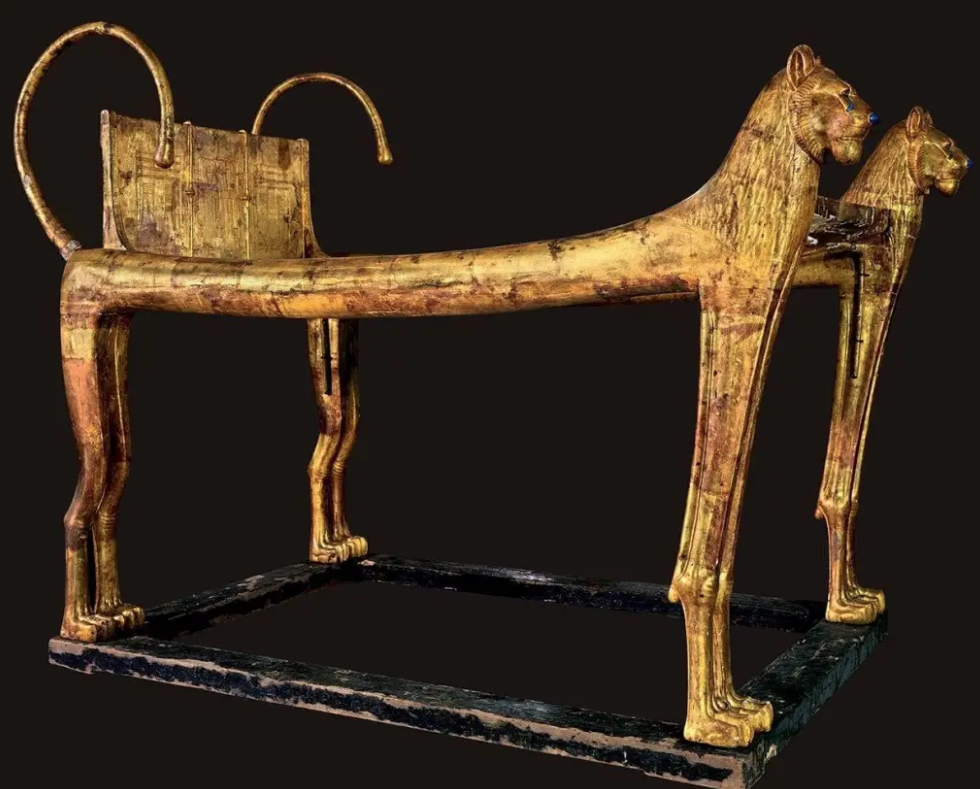
The eyes of these animals are inlaid with blue glass paste; the eyelids are colored in black. The central panel is decorated with the Djed and the Ankh signs.
Three ritual funerary couches were found in the antechamber of Tutankhamun. They are made of stuccoed gilded wood in the form of sacred animals whose eyes are inlaid with colored glass paste. These beds may have been intended to bear the deceased king during his journey to his eternal destination in the afterlife.
Lions were widespread in prehistoric times and still present in the Nile Valley in the late Pharaonic civilization. The lion was an important element in royal symbolism and divine iconography, the latter being mostly female.
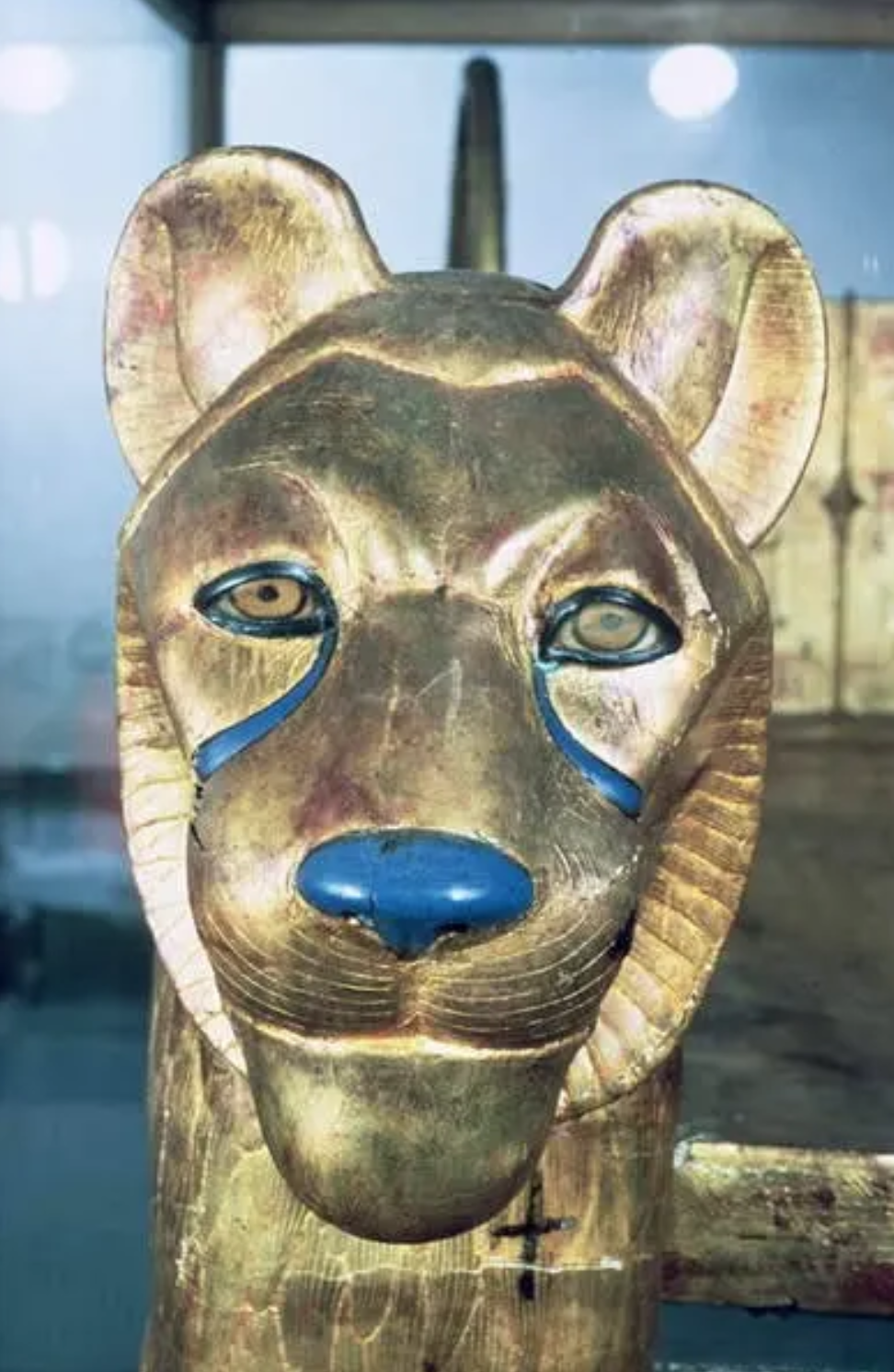
From the Tomb of Tutankhamun (KV62), Valley of the Kings, West Thebes. Now in the Egyptian Museum, Cairo. JE 62011
